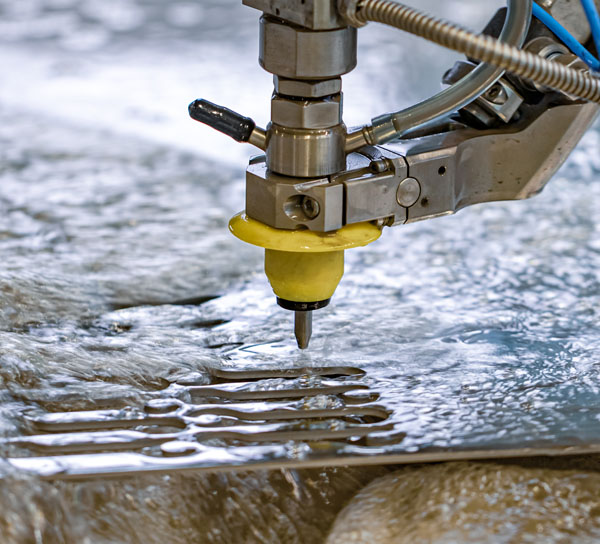Universally and without pressure
The method of water jet cutting is very versatile and can be broadly applied. The liquid stream or stream of liquid and abrasive material concentrated and provided under high pressure (under pressure of 4137 bar) constitutes the cutting tool. One significant advantage of water jet cutting is lack of heat reaction. In this method of processing changing of the structure of cut material is absent and there are no stress known from the classic methods of cutting.
Keeping a very narrow cutting line we obtain a precise surface of the edge. Water jet cutting for a number of materials is the only possible method allowing achieving any shape of the cut element during one technological operation. Water jet cutting is used for a broad spectrum of materials.

To sum up and supplement - advantages of water jet cutting are as follows:
- lack of thermal influence zone,
- lack of interference in the structure of a material,
- possibility of processing variable materials,
- possibility of cutting complicated shapes,
- high quality of cut edges,
- possibility of cutting hared materials of large thickness,
- cost lower than cutting and processing using standard method,
- small forces affecting the materials (lack of flexure and refractions),
- low temperature of cutting not causing changes in the structure of the material (the material is not hardened in case of steel).
